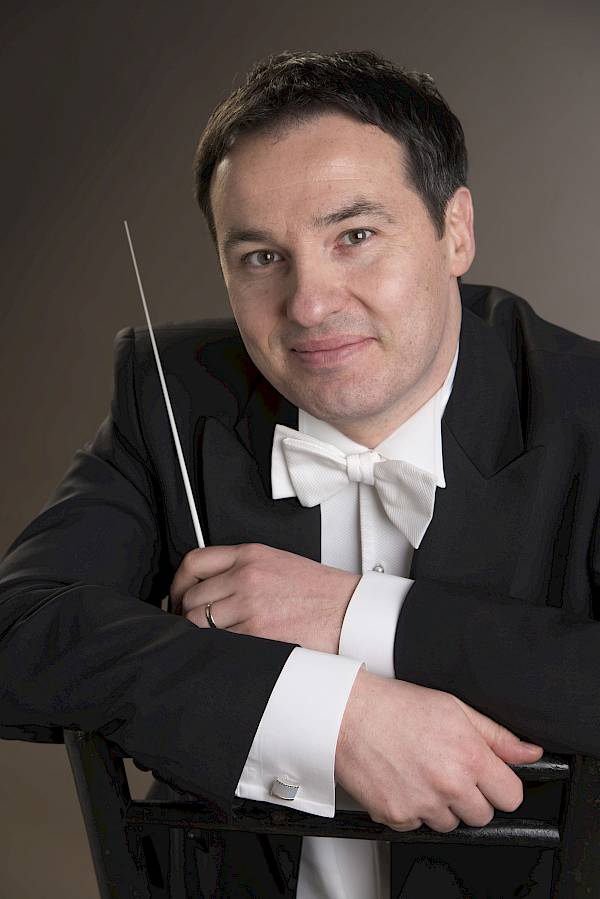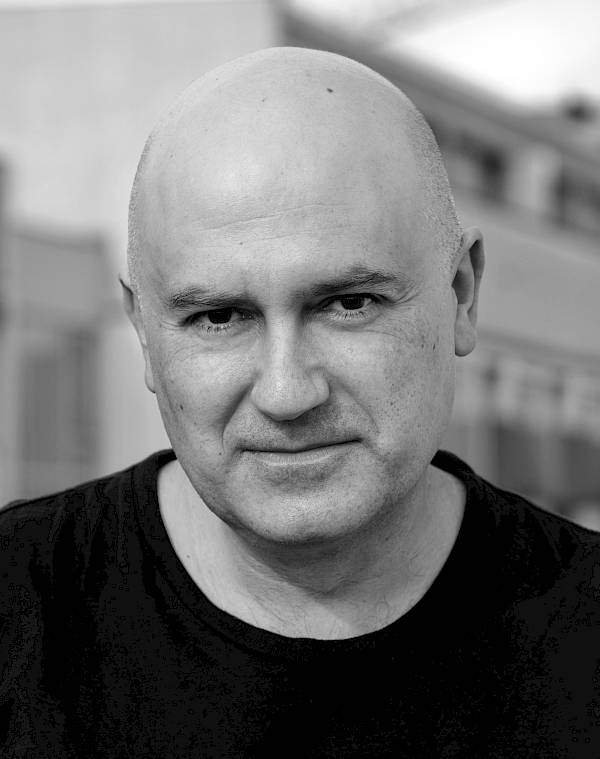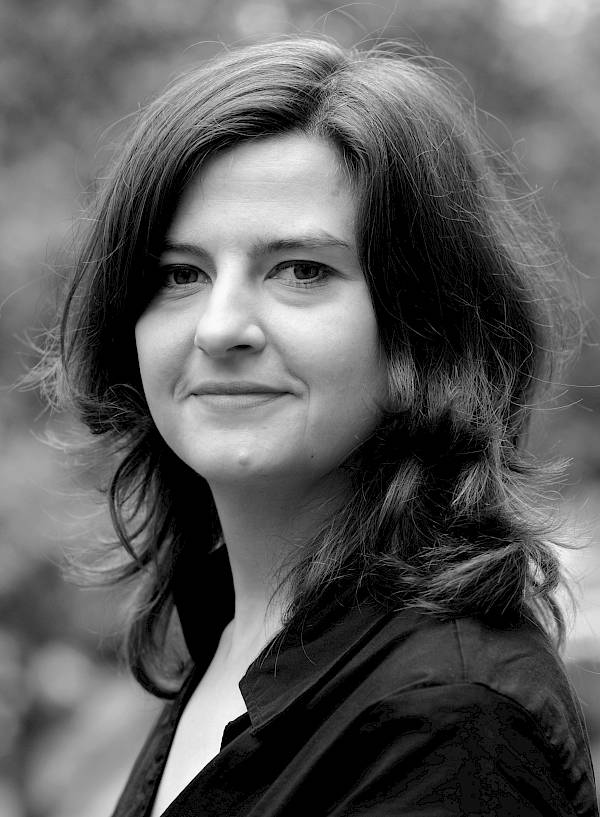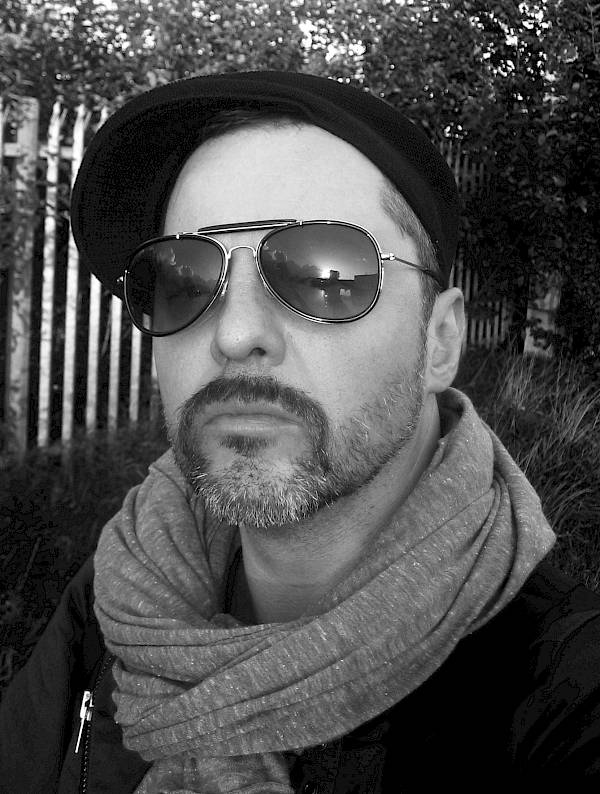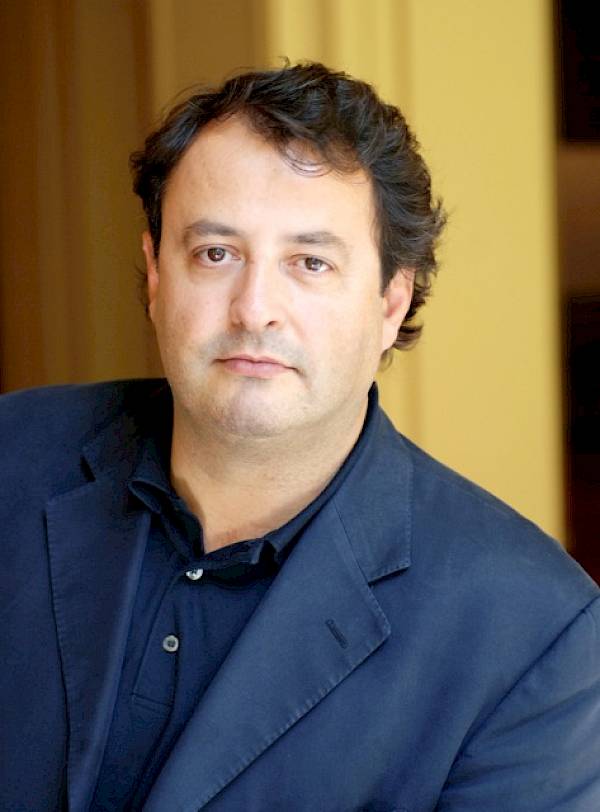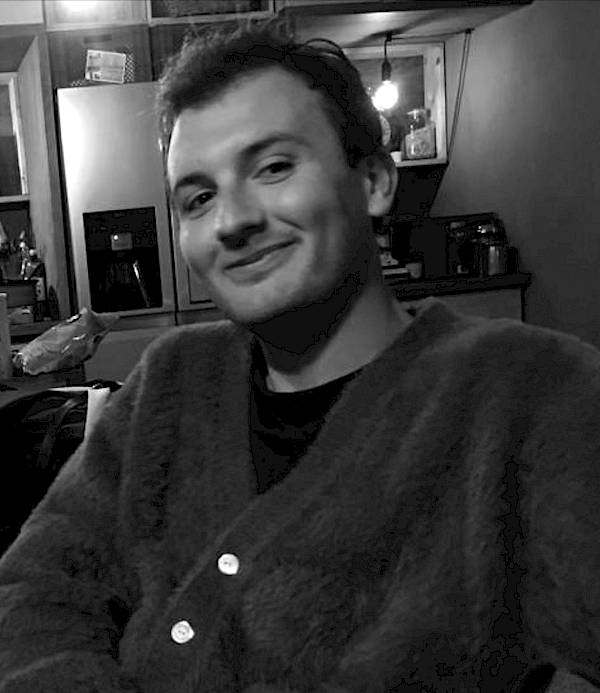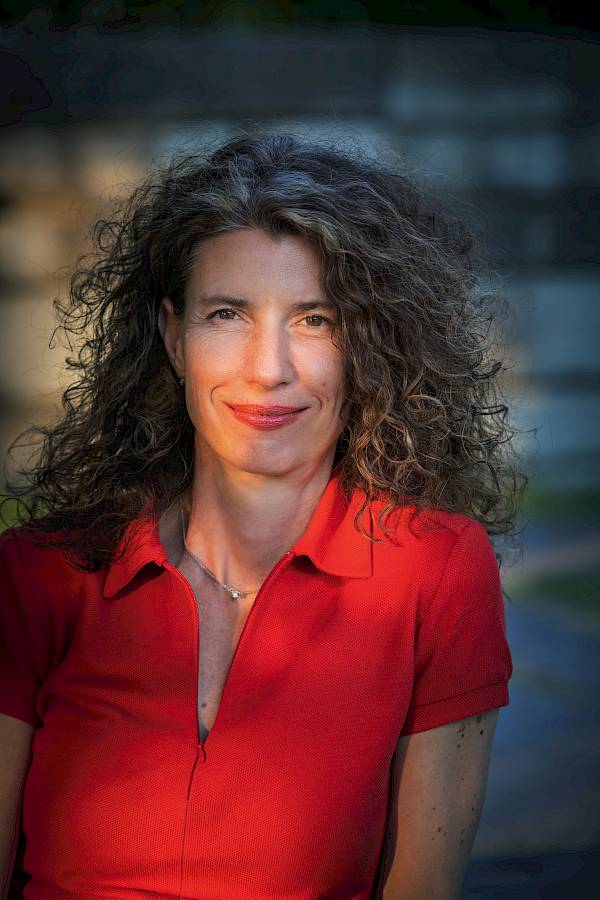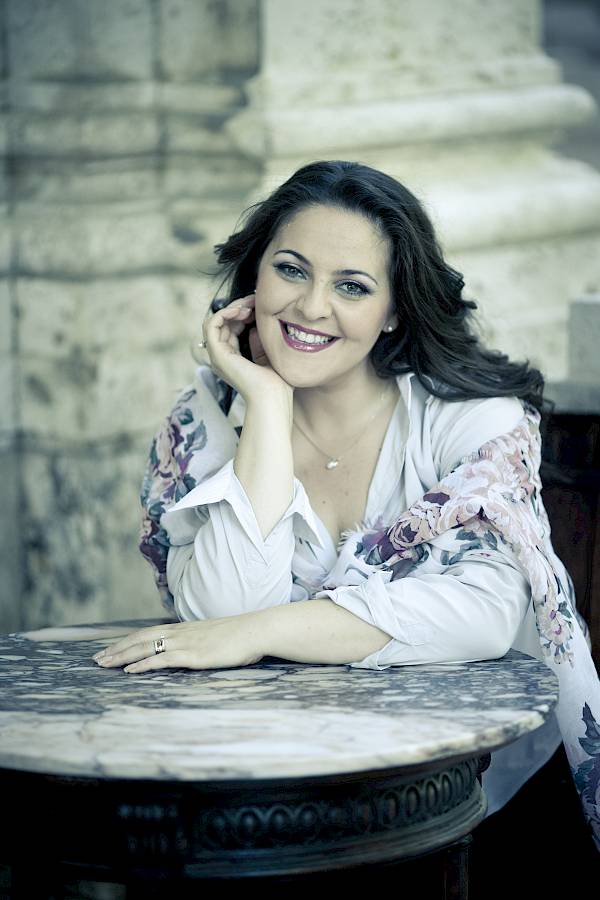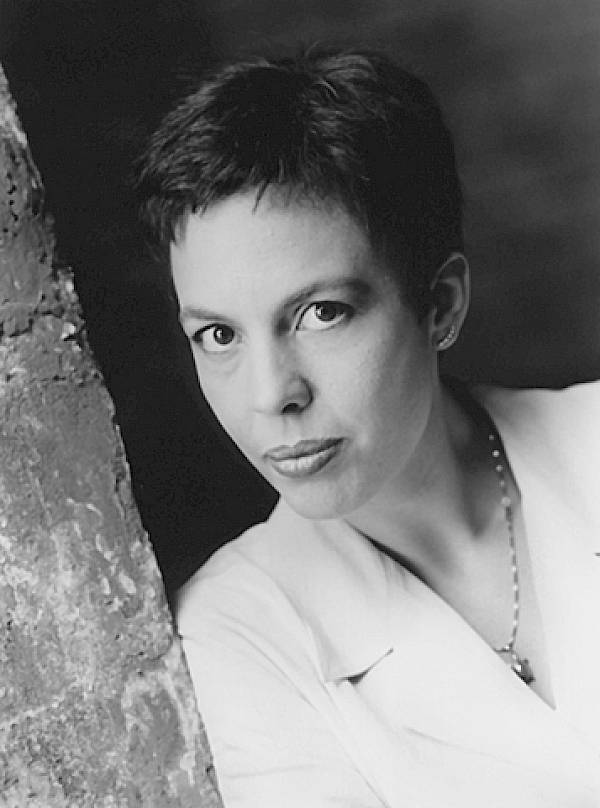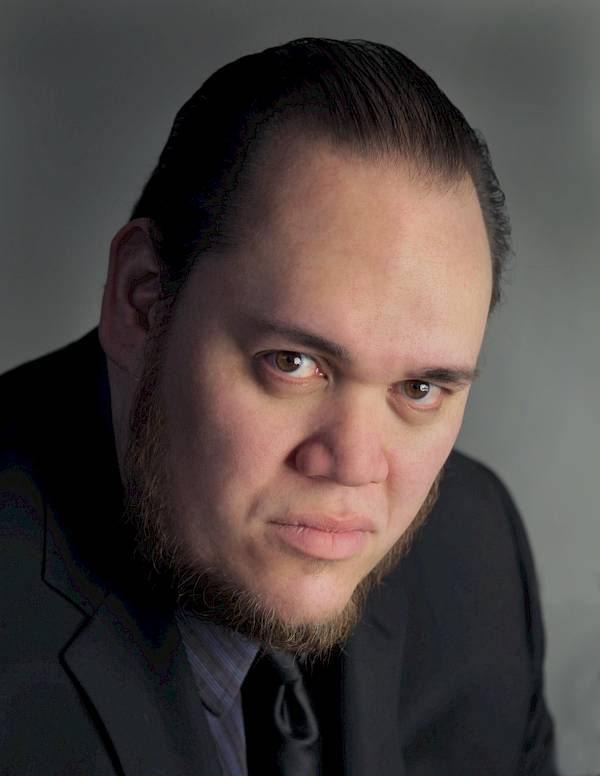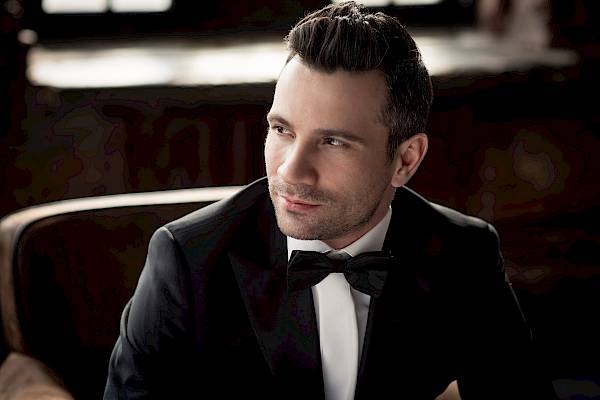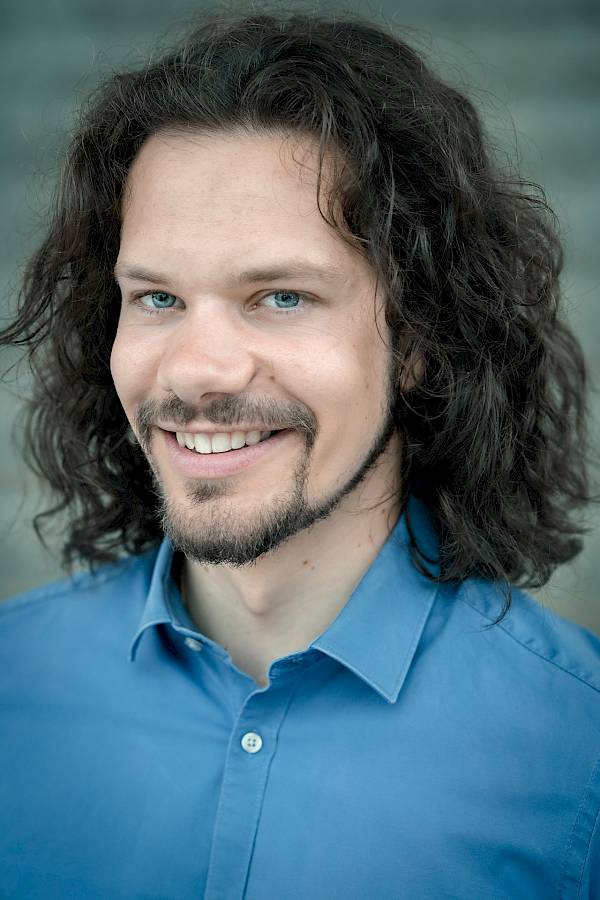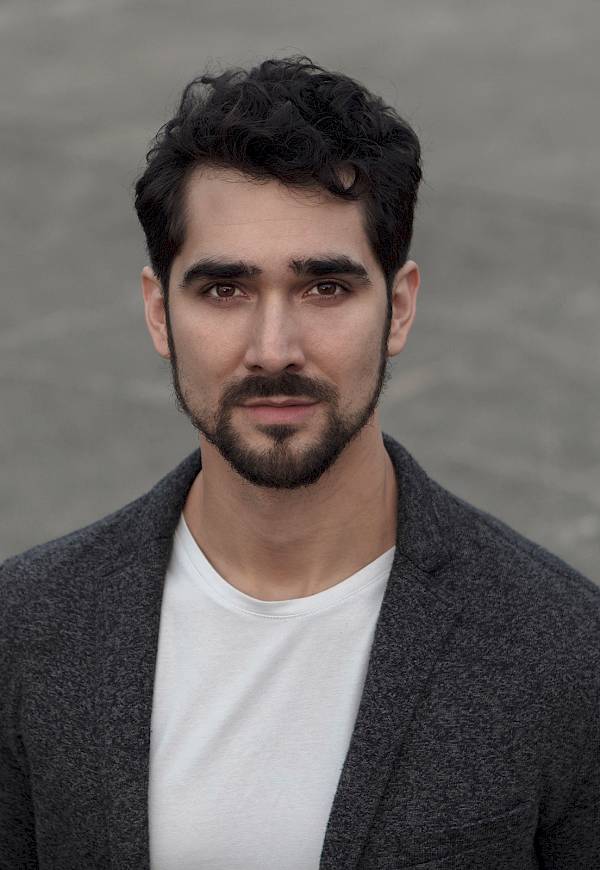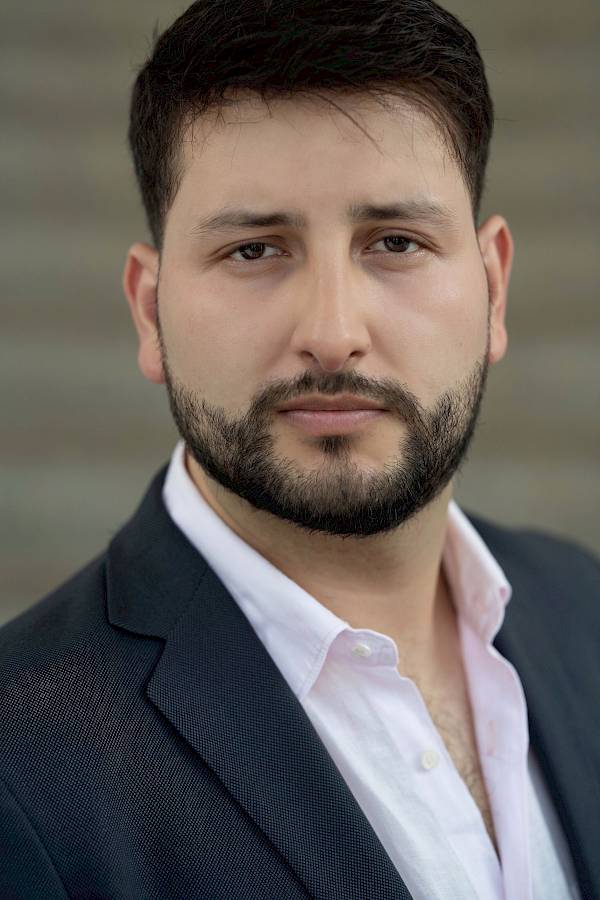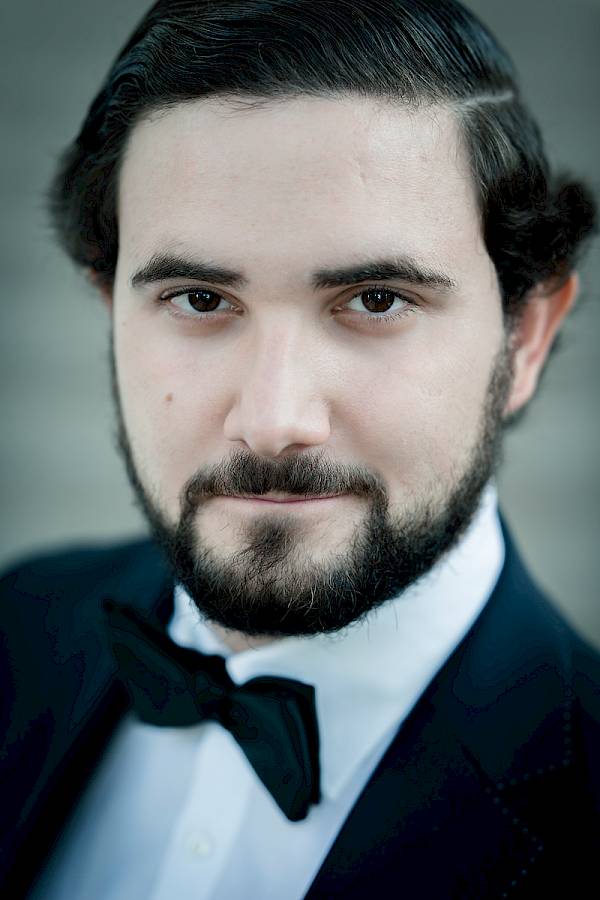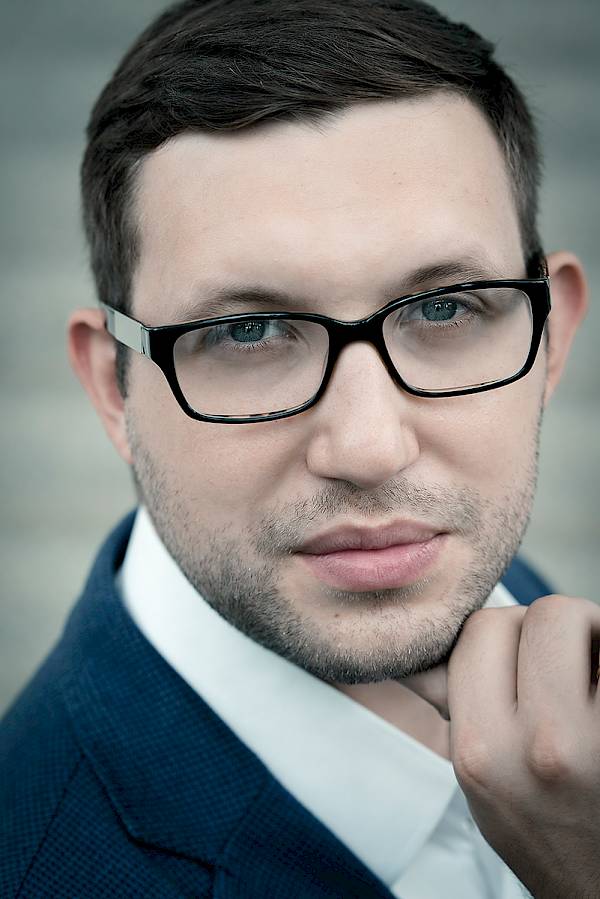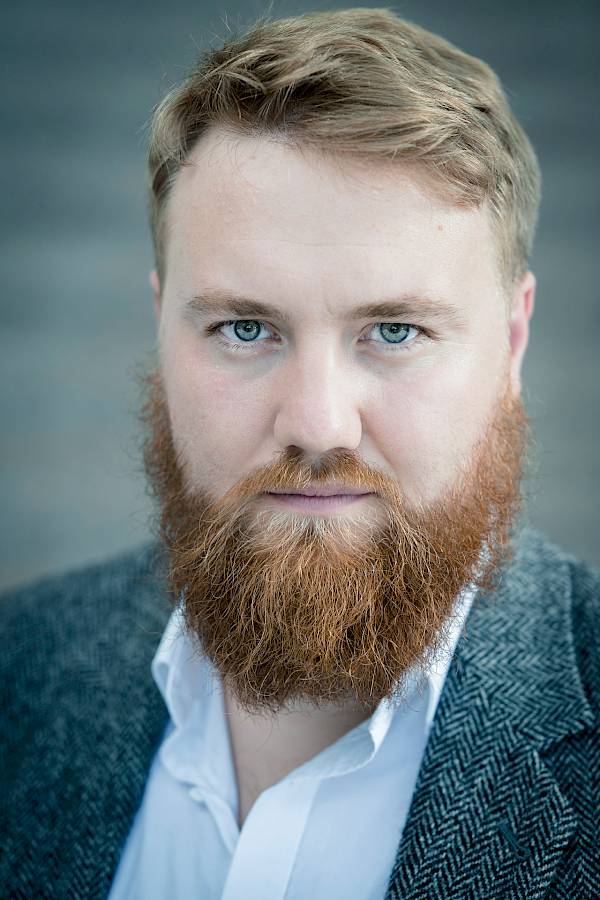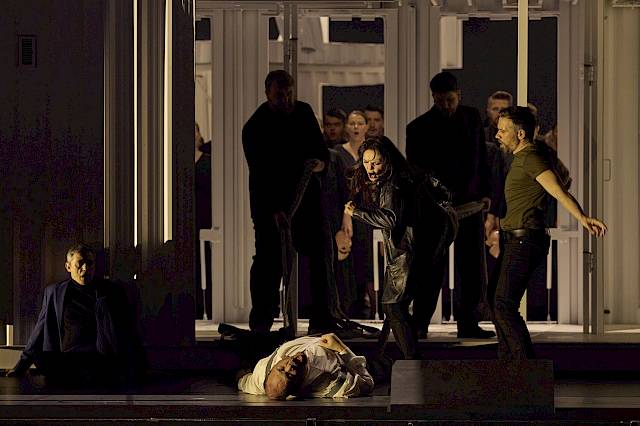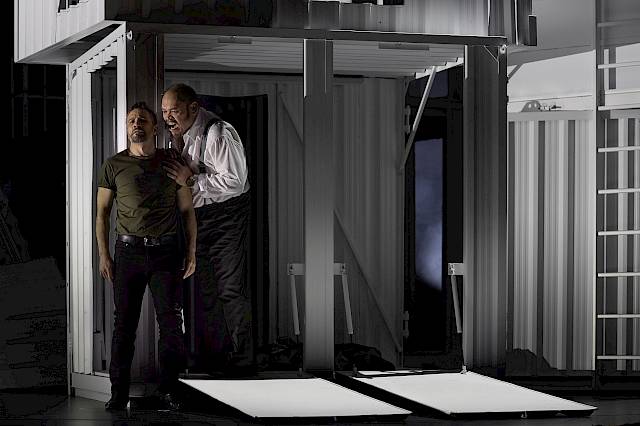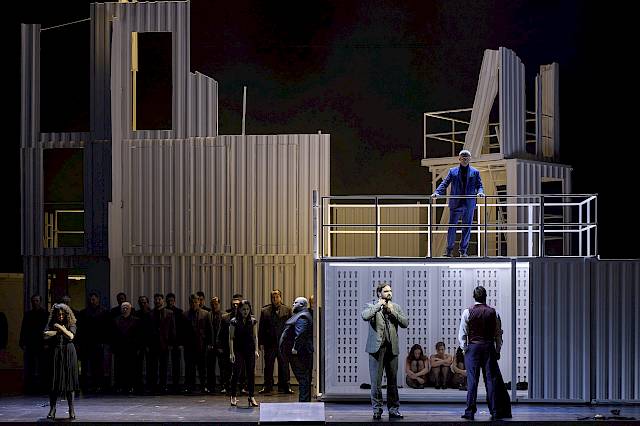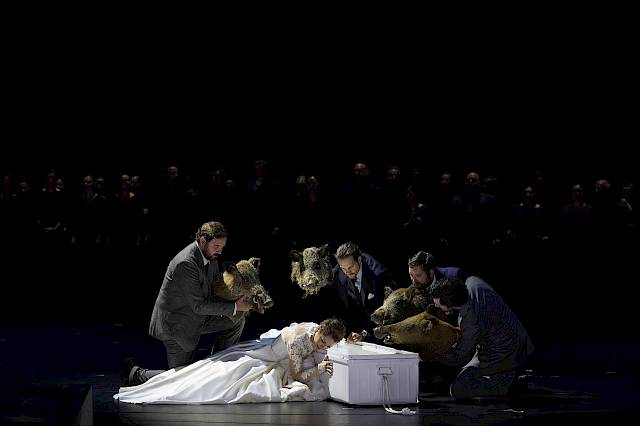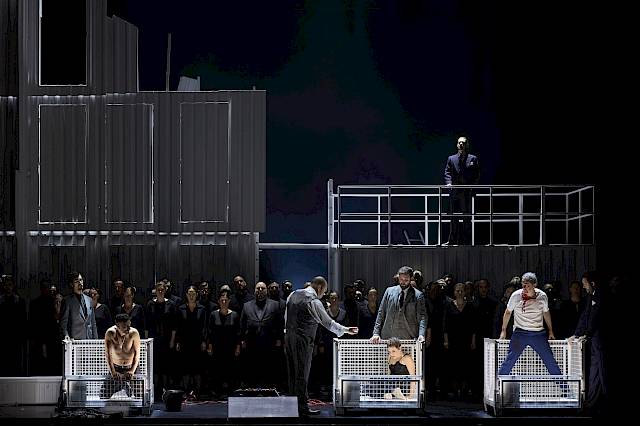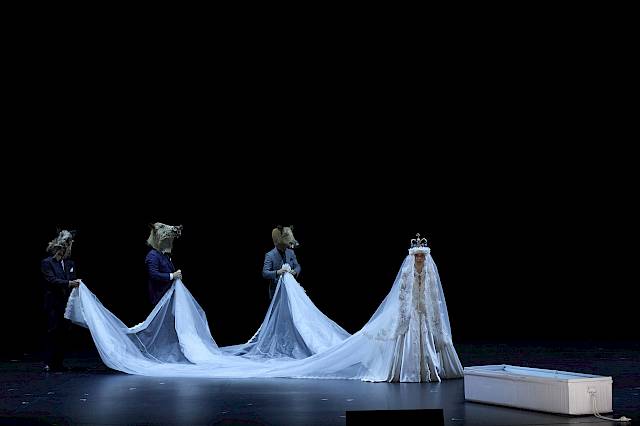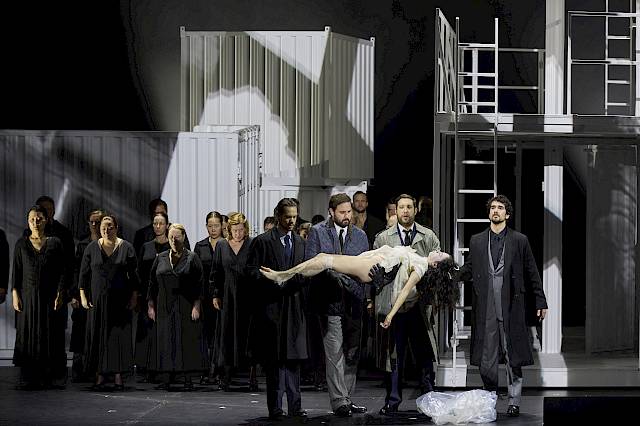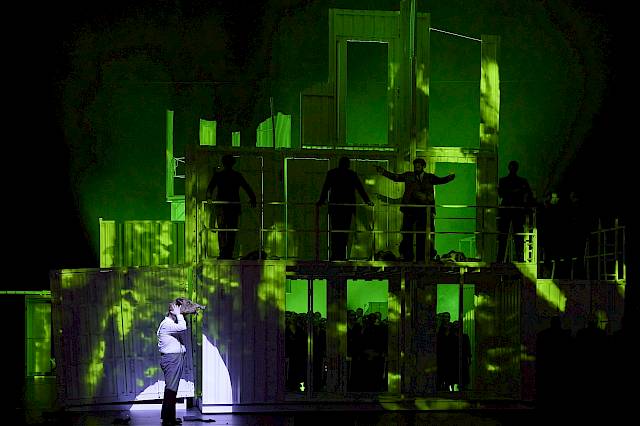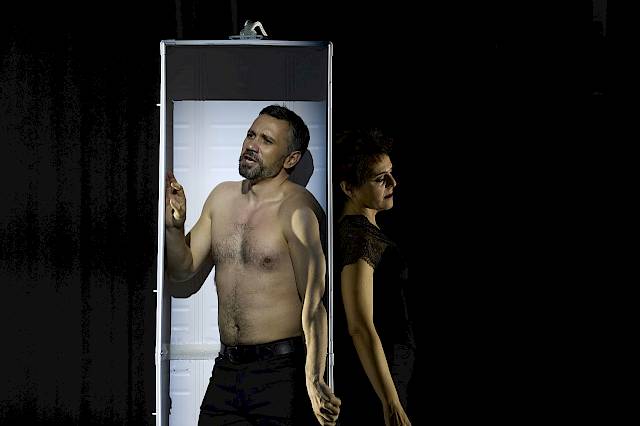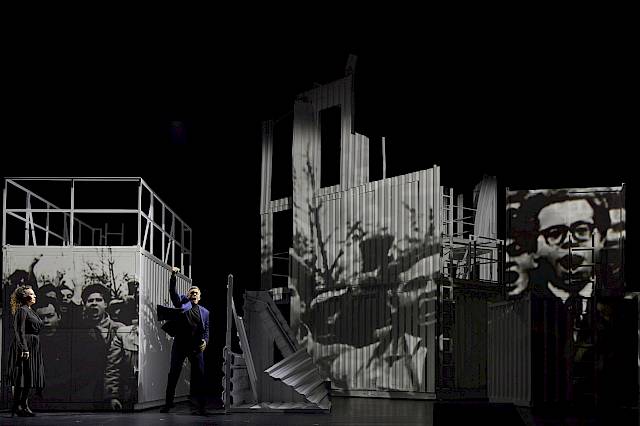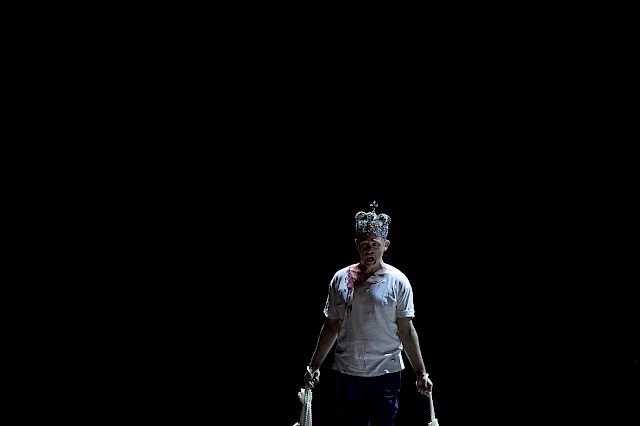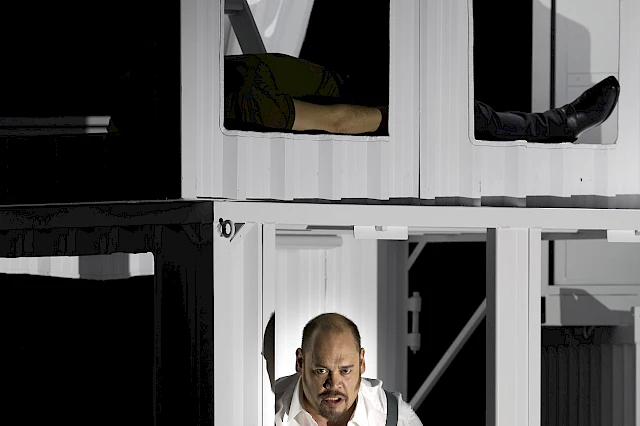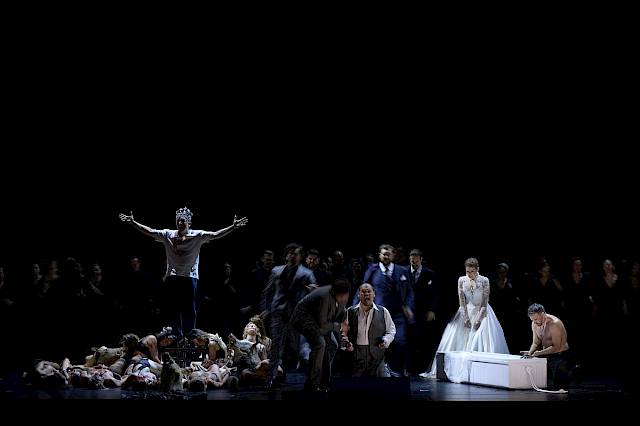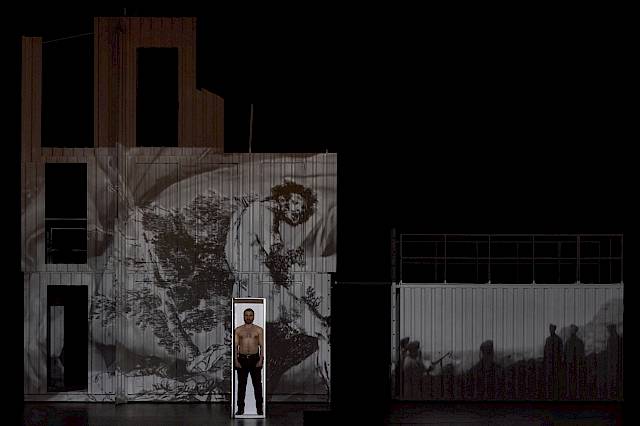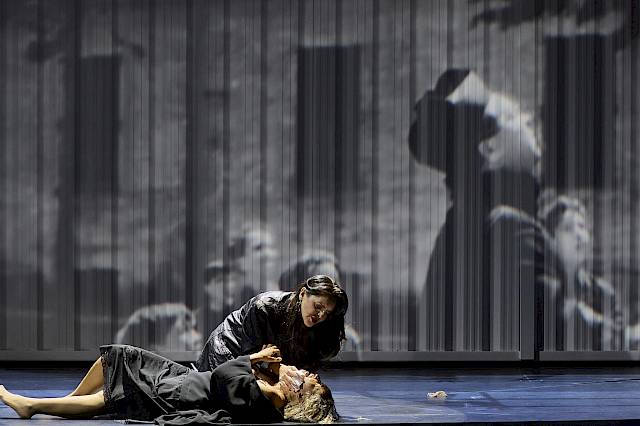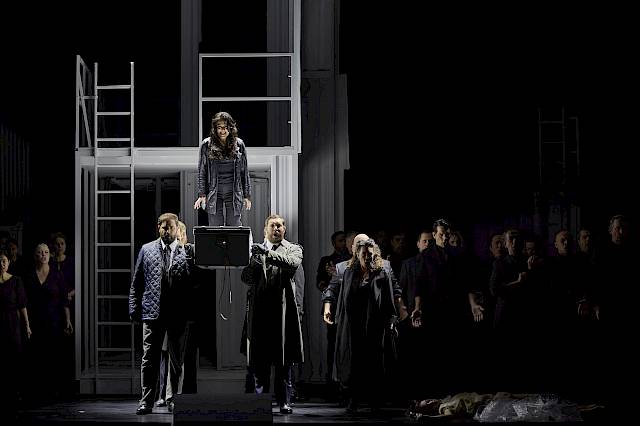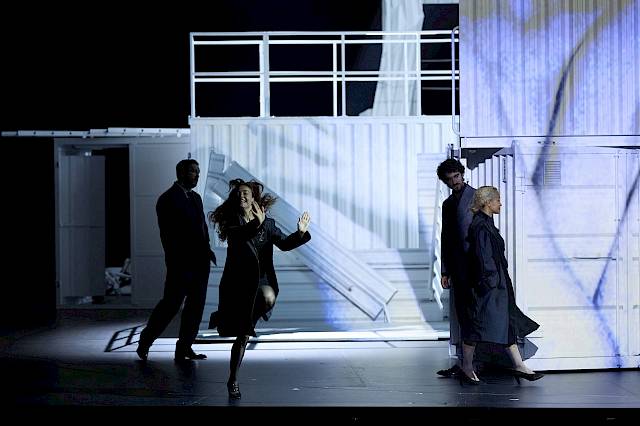Abstract
Spanish director Calixto Bieito is known for his visually stunning, emotionally charged productions, that don't hesitate to depict violence. In Verdi’s Vespri siciliani, written for Paris in 1855, the violence is already present: According to the libretto, the opera is set in French-occupied Sicily in 1282. The occupying forces brutally take what they consider to be their property – which is primarily Sicilian women. In addition to the historical background, Verdi was particularly interested in the unrequited love between Elena, a Sicilian woman, and Arrigo, a resistance fighter, who learns in the course of the action that the despised leader of the French occupiers is his father. Further, Arrigo himself is the son of a Sicilian woman whom his father once raped. Torn between his love for Elena, his ideals of community, and his newly discovered family ties, Arrigo decides to thwart the assassination attempt on Monforte planned by the insurgents. The revolutionaries are arrested – and with them, Arrigo’s lover, Elena. To prevent further bloodshed, Monforte orders the marriage of Elena and Arrigo as a sign of peace. But Procida, a Sicilian doctor and leader of the rebels, has designated the wedding bells as the signal for the massacre; both the French and the Sicilians perish in the bloody slaughter.
After its premiere in Paris in 1855, Vêpres Siciliennes was translated into Italian and the opera became internationally recognized as I vespri siciliani. It contains the themes that preoccupied Verdi throughout his life: a troubled father-son relationship, the loneliness of the powerful, the incompatibility of private desires and public obligations. Croatian conductor Ivan Repušić conducts the Philharmonia Zürich for the first time. Quinn Kelsey returns to the Opernhaus as Montforte, while Maria Agresta and Sergey Romanovsky are the tragic couple.



